#Philippe Le Bas
Explore tagged Tumblr posts
Text

uhh tell me if you want me to make another one with them switched around <3
#maximilien robespierre#bonbon robespierre#augustin robespierre#camille desmoulins#philippe le bas#georges couthon#georges danton#louis antoine de saint just#antoine saint just#robespierre#desmoulins#le bas#couthon#danton#saint just#frevblr#frev shitposting#frev memes#frev#anyways bye#*blows this whole place up*
210 notes
·
View notes
Text


saint just and philippe le bas appreciation!
#louis antoine de saint just#saint just#frev#french revolution#le bas#philippe le bas#my art#frev art
261 notes
·
View notes
Text


saw a tiktok thus the idea was born
#french revolution#frev#philippe le bas#elisabeth duplay#elisabeth le bas#augustin robespierre#bonbon robespierre#maximilien robespierre#louis antoine saint just#my art
343 notes
·
View notes
Note
Which revolutionaries had earrings?
All I really know of are Éléonore Duplay, Lucile Desmoulins and Philippe Le Bas, who all wear hoop earrings in the most famous (and, in Éléonore and Philippe’ case, only) portraits presumed to be depicting them. Since these are just portraits, it’s however hard to say if they wore earrings everyday or just put them on for this specific occasion.
The common claim that Saint-Just had earrings does interestingly enough not appear to be that well backed up. There is only a single depiction where ”he” has one, and it’s not one of the four that we can be almost certain is Saint-Just. You can read more about it here: 1, 2, 3, 4.
#saint just#louis antoine saint just#éléonore duplay#lucile desmoulins#philippe le bas#frev#french revolution#ask#love crushing these frev myths…
80 notes
·
View notes
Text
Thank you, Elisabeth Le Bas!
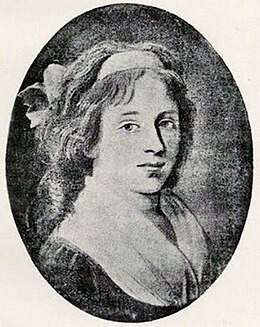
Thank you for these touching memoirs. Her modesty also moved me, as she is clearly one of those women behind the scenes who encouraged their revolutionary husbands, who would not have been as effective without them. She possesses an extraordinary strength of character and integrity that many men should have been inspired by instead of placing their individual interests first. The revolution could have been saved (no need to specify who I am targeting here). Although her memoirs may at first seem to portray a woman who simply supports those she loves, it is actually much deeper than that. She attended political debates with Charlotte Robespierre, showing that they were far more politically engaged than they appeared. By the way, I have a theory about Philippe Le Bas based on an excerpt from Elisabeth Le Bas:
"It was the day when Marat was borne in triumph to the Assembly that I saw my beloved Philippe Le Bas for the first time.
I found myself, that day, at the National Convention with Charlotte Robespierre. Le Bas came to greet her; he stayed with us for a long time and asked who I was. Charlotte told him that I was one of her elder brother’s host’s daughters. He asked her a few questions about my family; he asked Charlotte if we came to the Assembly often, and said that on a particular day there would be a rather interesting session. He urged her to come to it."
I haven’t found any evidence that Le Bas defended the rights of womens citizens (I hope I’m wrong because I really like him as a revolutionary, so feel free to correct me). Yet, I have no valid reason to doubt what he said to Charlotte Robespierre about encouraging these two women to attend a session of the Assembly. I get the impression that Le Bas was one of those men who valued women’s political opinions, had no problem with them attending political sessions, but didn’t see the point of them participating more actively in political life. I imagine he had no objections to discussing it privately with Elisabeth.
Philippe and Elisabeth Le Bas form such a touching couple (I almost applauded when they were finally able to marry), and I really liked that, together with Henriette Le Bas (another woman who is too unknown in the revolution, but fortunately Tumblr is here to bring them out of the shadows), she accompanied her husband and Saint-Just (she was one of the many women who accompanied the revolutionaries on their missions, like Charlotte Robespierre, Sophie Momoro, etc.).
I also really appreciated the relationship she had with Eleonore Duplay, where we also see the courage of her sister in adversity. Paradoxically, it’s in Elisabeth Le Bas’s memoirs that I began to appreciate Charlotte Robespierre. Charlotte Robespierre’s memoirs contain quite a few inaccuracies, as other Tumblr users have pointed out, and I thought to myself, it’s impossible, she’s way too “saintly,” I don���t believe it for a second (not to mention that she comes across as too apolitical, but I imagine those who helped write the memoirs didn’t want a thinking woman). Here, thanks to certain passages from Elisabeth and what we know from the Mathons, we have proof that she is certainly not a saint (no one is), but she’s not a heartless, toxic, or selfish woman as I’ve seen (not on Tumblr but on other forums, where they oddly bash Robespierre but blame Charlotte for disowning her brother; those who say these things are inconsistent, plus I’d like to see how they would have reacted if they had faced the same threat as Charlotte). She is a woman with touching qualities (like her kindness towards Elisabeth, her desire to accompany her brother on a mission, when she designated Mademoiselle Mathon as her heir, or that at the end of her life, she wanted to rehabilitate her brothers) but also with weaknesses (I would start with her completely inaccurate memoirs, I think the disagreement between Madame Duplay, Eleonore, and Charlotte involved shared faults, just like the dispute between Augustin and Charlotte, especially the letter Augustin wrote to Maximilien about Charlotte, etc.). Thanks to Elisabeth Le Bas’s memoirs, Charlotte Robespierre is neither a monster nor a too-perfect being, she is just a human being. By the way, I don’t blame her for disowning her family name and her brothers temporarily because the danger could have been real. She was a civilian who didn’t seek trouble, and in that respect, it was trouble (more precisely, the Thermidorians) that came to her. I also don’t blame her for asking Bonaparte for a pension and continuing to receive one under Louis XVIII because life for a single woman was very hard at that time. It took extraordinary strength of character to avoid doing all that, and not many people had it. Where I do criticize Charlotte Robespierre is for embellishing the reality concerning her in her memoirs.But it was very sad that she was not able to reconcile with her brothers especially Augustin before she died because none of them seem toxic to me. If France and the revolution had no longer been in danger, if they had survived, I think they would have reconciled, but I can't speak for them.
Returning to Elisabeth’s memoirs, I smiled when she idealized the revolutionaries she was close to, like the Robespierre brothers or Saint-Just, although after recognizing many of his qualities, she said he could sometimes be severe due to his great love for the country and the revolution. But it’s normal that she idealized them and defended them loyally because she was simply being loyal to the revolutionary struggles they were leading and in which she believed, even though it would have been good to see their flaws in her memoirs. Memoirs are always subjective, even from an honest person like Elisabeth Le Bas. Despite everything, she is attached to her country and is capable of making a judgment when she says in the excerpt, “Nevertheless, he needed to leave; Robespierre, who had great confidence in Le Bas because he knew his wise and prudent character well, had chosen him to accompany Saint-Just, whose burning love of the patrie sometimes led to too much severity, and who had a tendency to get carried away.” On the other hand, what troubles me about this statement is that normally, a person is not sent on a mission based on the will of just one other person; it usually requires the majority of votes within the CPS or the CSG (sometimes in the Convention). But we see that Elisabeth stays in the background yet makes a thoughtful political judgment to better safeguard the endangered French Revolution.
However, I didn’t like that Elisabeth constantly put herself down by describing herself as scatterbrained when everything indicated that she was not. I was saddened by the tragic fate of Philippe Le Bas, even though we all knew it was inevitable. At least they were able to say goodbye. At least he died before seeing the tragic outcome of the revolution. I found Madame Duplay’s death unfair. Poor Duplay family, who went through one tragedy after another but found the strength to bounce back. I admired Eleonore for helping Elisabeth during her most tragic moments in prison. I applauded when Elisabeth Le Bas showed astonishing courage in front of her adversaries from prison to her release. She never asked for anything and displayed extraordinary strength.
Even though I wouldn’t have blamed her for abandoning the revolution to survive with her son in such difficult times, she didn’t do it, whereas some “revolutionaries” greedy for their wallets destroyed the revolution, endangered France, and undermined the revolutionary people's efforts for social progress that had begun since 1789. The obligation of loyalty to the revolution that deputies like Fouché, Barras, or a general named Bonaparte should have respected was found in the daughter and wife of an authentic revolutionary (especially in the worst moments). Honor to her (and to the many men and women like Elisabeth) and shame on all those greedy ones (I must admit that my language is blunt and could be more nuanced if making a historical judgment, but I’m more in the realm of value judgment, so I feel I can allow myself some liberties, sorry for the fans of theses characters it's only my view).
On a more positive note, thank you, Elisabeth Le Bas, for fighting against this all-too-common black legend of the revolution through your memoirs.
Thank you for your journey as a fighter. If only the greedy deputies I mentioned earlier had a quarter of your integrity and courage and remembered that they were there to serve the people, as they are in their positions solely because of the people and thanks to them, the revolution would surely have lasted longer.
Thank you, Elisabeth, for all you did with so many others. May your life serve as an example and a source of strength for us.
91 notes
·
View notes
Text




#history#frev#french revolution#art#maximilien robespierre#robespierre#saint just#frev art#frevblr#frev community#le bas#philippe le bas#antoine saint just#louis antoine de saint just#thermidor
124 notes
·
View notes
Text

Original picture
#french revolution#frev#frev memes#almost half of these people are not even from pas-de-calais#but still#so... let's start the list#gracchus babeuf#philippe le bas#philippe lebas#joseph le bon#joseph lebon#camille desmoulins#desmoulins#antoine quentin fouquier-tinville#fouquier-tinville#martial herman#augustin robespierre#charlotte robespierre#maximilien robespierre#robespierre#louis antoine saint just#saint just#saint-just
31 notes
·
View notes
Text
These are the times that I wish I was better at drawing, but here is this.
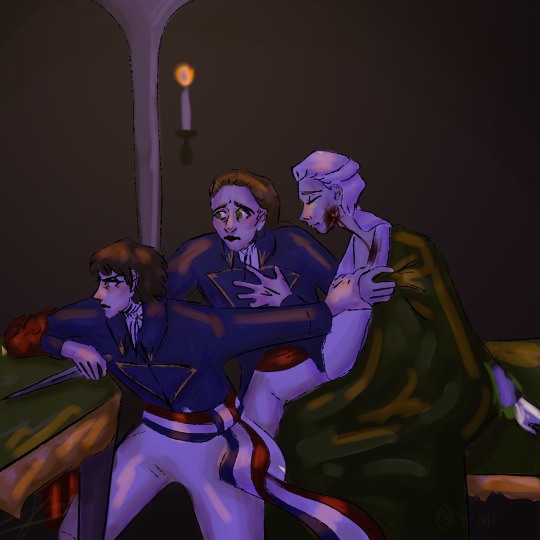
Saint-Just, Le Bas and Robespierre Thermidor sadness once again.
Inspired by the painting “Courage, Anxiety and Despair: Watching the Battle” by James Sant (pictured below)

When I tell you the immense love and admiration I have for this painting, it can not be measured.
#frev#french revolution#claws out for the main 5#claws out for robespierre#robespierre protection squad#maximilien robespierre#robespierre#louis antoine de saint just#saint just#philippe le bas#le bas#frev art#thermidor#courage anxiety and despair: watching the battle
78 notes
·
View notes
Text
Am I so scatterbrained that I have never noticed this 1794 illustration? Saint-Just is nr10, herault de Séchelles is nr 7. Does anyone have additional context for it?
#saint just#frev community#antoine saint just#frev#thermidor#herault de sechelles#philippe le bas#robespierre
3 notes
·
View notes
Text
#they make me ILL#ok time to cry again#la terreur et la vertu: robespierre#la terreur et la vertu#maximilien robespierre#antoine saint just#philippe le bas#augustin robespierre#georges couthon#frevblr#frev#anyways bye#*blows this whole place up*
94 notes
·
View notes
Text





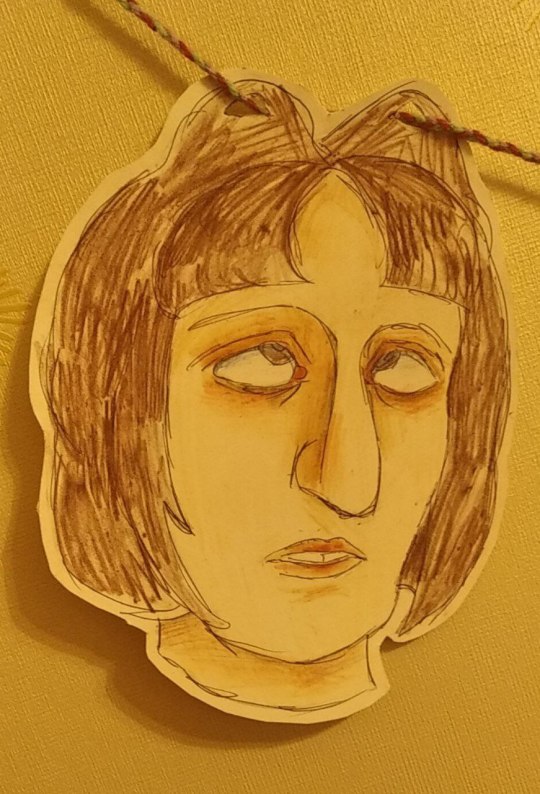
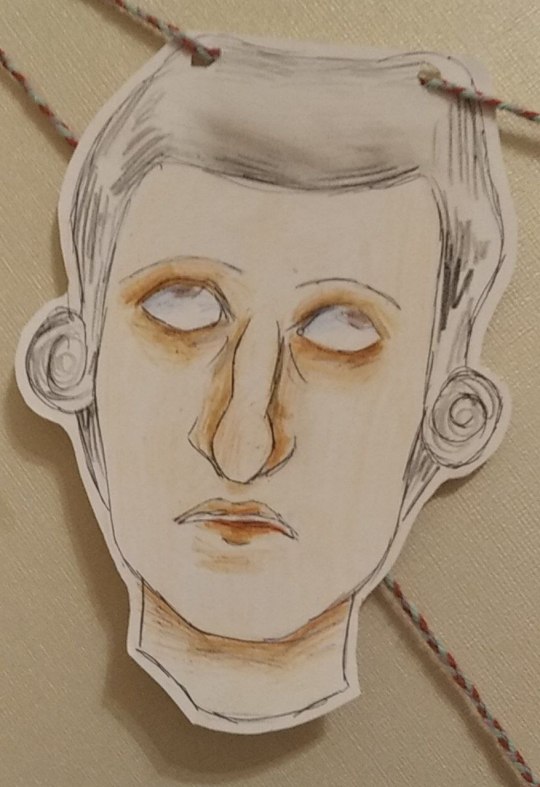
Saint Just, Robespierre, bon bon, Camille, Philippe Le Bas, George Couthon
#camille desmoulins#french revolution#frev#french#robespierre#saint just#couthon#bon bon#Philippe Le Bas
15 notes
·
View notes
Text

at this point i don't think i will be able to explain the thought process that led to the creation of the emo commissioner uniform
#also i think i've pavloved myself into drawing le bas every time i finish an exam#french revolution#frev#louis antoine saint just#philippe le bas#my art
87 notes
·
View notes
Text
Bringing back the frev barista story again. In said story, it is canon that Philippe Le Bas calls his coworkers (which are basically just Robespierre and Saint Just) “babe” . This coming from my own experience working in restaurant industry where all of my coworkers call each other (and me) “babe”. It’s a nice little thing.
#man I am going to miss them#frev#french revolution#the frev barista fic#philippe le bas#antoine saint just#maximilien robespierre#saint just#Robespierre#robespierre protection squad#claws out for robespierre#claws out for the main 5
8 notes
·
View notes
Text



Philippe Le Bas — two passports from the year 1792 have been conserved, the first one stating ”height of five pieds five pouces (176 cm), brown (châtain) hair and eyebrows, gray-blue eyes, short and a bit snub nose, small mouth, round chin, big forehead, ovale face,” the other ”height of five pieds five pouces, brown hair and eyebrows, gray eyes, enlarged nose, middle sized mouth, long chin, ovale face, high forehead.” Cited in Le conventionnel Le Bas: d'après des documents inédits et les mémoires de sa veuve (1901) by Stéfane-Pol, page 26-27.
Élisabeth Le Bas — in Histoire de Robespierre et du coup d’état du 9 thermidor (1865) the historian Ernest Hamel describes Élisabeth in 1794 as ”one of the most charming blondes one could see.” Hamel is confirmed to have met Élisabeth’s son Philippe, but it is less clear if he also met Élisabeth herself. She had dark eyes according to Alphonse Esquiros, who on the other hand is confirmed to have met Élisabeth in her old age.
Lazare Carnot — According to Mémoires de Larevellière-Lépeaux: membre du Directoire executif de la République Française et de l'Institut national (1895) ”Carnot is of a height above mediocre. He’s not all that large, but his limbs are and indicate a strong frame; his face, quite well shaped, is slightly marked with smallpoxes. He has a big nose, small water-colored eyes; his hair is blond, thinning, and his forehead is bald; his complexion, a bland white one, does not offer any ruddy shade when he is calm. This pale color, combined with a dry and cunning look, gives him a false and cruel appearance, which repels at first and banishes confidence.”
Georges Couthon — Several contemporaries agree that Couthon looked cute. Pierre Paganel claimed in that he possessed ”a gentle look, a laughing mouth, a countenance which solicited tender affections and promised kindness. His eyes caressed you; his silence attracted you; each of his features expressed a kind feeling and invited you to love him. […] If you imagine this head which seemed to have been composed with a singular predilection, sadly leaning over a body half consumed by premature paralysis; if you consider that his look, marked with habitual pain, in some way accused Providence of having taken away his youth, by taking away the means to spend it happily, you have a fair idea of the keen interest that Couthon inspired in every sensitive man who saw him for the first time.” Barante, an enemy of Couthon, said that his face was ”gentle and pleasant,” his complexion ”dull,” features ”fine and firm,” his look ”gentle and passionate,” and his voice ”persuasive and emotional.” (cited in Georges Couthon (1983) by Albert Soboul). Maurice Gaillard, who met Couthon in May 1794, described his face as ”truly angelic” in a note written to Fouché somewhere during his time as Minister of Police, and in Souvernirs d’un sexagénarie (1833), Antoine Vincent Arnault called him ”the sweet Couthon,” even while describing his execution. In a letter dated September 29 1791 Couthon writes that he’s able to walk to the Legislative Assembly on foot. A year later, September 1792, he was however unable to use his legs and had to be carried, according to the testimony of Jacques-Antoine Dulaure (1794). When exactly Couthon got himself a wheelchair to get around appears to be unknown.
Hérault de Séchelles — A passport dated October 28 1793 documents the following: ”height of 5 pieds 8 pouces (184 cm), brown hair and eyebrows, high forehead, medium sized nose, brown eyes, small mouth” (cited in Un épicurien sous la Terreur; Hérault de Séchelles (1759-1794); d'après des documents inédits (1907) by Emile Dard). In Mémoires sur les règnes de Louis XV et Louis XVI et sur la revolution (1886) Jean-Nicolas Dufort de Cheverny describes Hérault in early 1792 as ”big, well formed, with the most beautiful face possible,” and specifies in a footnote that Hérault ”was one of the most beautiful men in France.” Madame Roland too mentions that Hérault was good looking in her memoirs, noting that ”all these pretty boys seem to me to be poor patriots.” Hérault’s lover Suzanne Giroux de Morency wrote in Illyrine, ou l'écueil de l'inexpérience (1800) that Hérault was ”a beautiful man” and described his eyes as ”big” and ”superb.”
Pierre Gaspard Chaumette — a passport from 1784 states the following: ”height of five pieds, blond hair and eyebrows, blue eyes, a small hole under the left eye, somewhat large nose.” Cited in Mémoires de Chaumette sur la Révolution du 10 août 1792 (1893). According to Pierre Paganel, ”Chaumette was small, his waist thick and squat, his face broad and flat; he looked humble, his eyes were shy and delicate, and his countenance, if I may put it that way, was tearful. He possessed to the supreme degree the silent game of hypocrisy. Through modest and dreamy language one perceived a very resolute character. Long black [sic!] hair, coarse clothing, a more than slovenly outfit, hid a deep ambition from being seen.”
Paul Barras — According to Mémoires de Larevellière-Lépeaux: membre du Directoire executif de la République Française et de l'Institut national (1895) ”He was tall, strong, vigorous and very well built. He had quite handsome features, and was overall a very handsome man; but he looked harsh, his countenance was gloomy, his look sinister; serenity rarely appeared on his face. When he smiled, his smile, gracious in itself, resembled those rays of sunlight escaping through dark clouds which soon intercept them. He had a bad tone in society, and lacked distinction. He had neither that which comes from a noble soul and an elevated spirit, nor that which a careful education and association with good company gives. With a fine figure and a masculine face, he had no external dignity, and always retained something of that common and bold air that bad society gives.”
Sophie Momoro — Jean-Baptiste Laboureau, who met Sophie while they were both imprisoned in the Prison de Port-libre, wrote in his diary on March 19 1794 that she ”is very mundane; passable features, terrible teeth, the voice of a fishwife, an awkward appearance, that's what constitutes Madame Momoro.”
Théroigne de Mericourt — described as being of ”middling height” by former deputy Jacques-Antoine Dulaure in 1823 and psychiatrist Jean-Etienne-Dominique Esquirol in 1838, and ”somewhat above middle size of women” by English visitor John Moore in 1792. Dulaure writes she ”bore on her face the characteristics of vivacity and audacity,” Moore that she ”has a martial air, which in a man would not be disagreeable.” Théroigne was brown according to Dulaure, while Esquirol adds that she had brown (chátain) hair and big blue eyes. Moore describes her costume as ”a kind of English riding habit, but her jacket was the uniform of the national guards,” while Dulaure recalls ”with her blue cloth costume, her hat on her ear, her cane in her hand and sometimes pistols in her pockets, she appeared wherever trouble broke out.” Esquirol, who met Théroigne when she was hospitalized at the Pitié-Salpêtrière claims that she at the time was of ”mobile physiognomy, lively, clear, and even elegant gait.”
Honoré Gabriel Riqueti de Mirabeau — In Les Mirabeau: nouvelles etudes sur la societe francaise au XVIIIe siecle (1891) Louis de Loménie mentions a letter dated 1754, where Mirabeau’s uncle reported to his brother that ”your son is as ugly as Satan’s.” He’s five years old maybe chill a little? An equally unflattering descriptions is given by François René Chateaubriand, who in Mémoires d’Outre-tombe(1860) wrote that Danton was ”inferior in ugliness to Mirabeau,” and similar words can again be found in Mémoires de la Societé d’agriculture, commerce, sciences et arts du department de la Marse, Chalons-sur-Marne (1862): ”With Danton as with Mirabeau, speech was greatly aided by the gaze, the gesture and that energetic ugliness of the face.” In Considerations on the principal events of the French Revolution (1818) Germaine de Staël writes: ”The eye that was once fixed on [Mirabeau’s] countenance was not likely to be soon withdrawn: his immense head of hair distinguished him from amongst the rest, and suggested the idea that, like Samson, his strength depended on it; his countenance derived expression even from its ugliness; and his whole person conveyed the idea of irregular power, but still such power as we should expect to find in a tribune of the people.” A child who had seen Mirabeau during the procession that preceded the opening of the provincial Estates later recalled that he had ”thick hair, brushed up above his broad forehead, and ending in thick curls at the level of the ears” and again that ”there was something imposing about his ugliness.” (cited in Mirabeau(1973) by Antonia Vallentin). Finally, in a letter from 1770, Mirabeau’s uncle writes that ”I found him ugly, but he has not a bad physiognomy: and he has, behind the ravages of the smallpox, and features which are much changed, something graceful, intellectual and noble.” (cited in Mirabeau: A Life-history, in Four Books (1848) by John Stores Smith).
Merlin de Douai — according to Mémoires de Larevellière-Lépeaux : membre du Directoire executif de la République Française et de l'Institut national (1895): ”his size is mediocre; he is thin, dry and gaunt. The thinness of his face makes his large mouth, his big eyes and his long nose stand out rather unfavorably. He is devoid of grace and dignity in his deportment. When one hears him speak for the first time in a somewhat raised tone, one is singularly shocked by the strange character of his voice; it is false, sharp, uneven and has something wild about it.”
Olympe de Gouges — A police description cited on page 35 of Olympe de Gouges (1989) by Oliver Blanc gives the following information: ”height of 1,68 meters, oval face, brown hair and eyebrows, brown eyes, a slightly aquiline nose, an uncovered forehead, a round, full chin, a medium mouth.”
Joseph Fouché — According to Fouché: les silences de la pieuvre (2014) by Emmanuel de Waresquiel, measurements made of Fouché’s skeleton in 1873 show that he was 175 cm tall. He was meagre according to both Philippe-Paul de Ségur (in Mémoires du général comte de Ségur (1894-1895)), Charles Nodier (Souvenirs de la Révolution et de l'Empire (1850)), Mathieu Molé and Victorine de Chastenay (Mémoires de madame de Chastenay, 1771-1815: L'empire. La restauration. Les cent-jours(1897)), who also all agree that there was something piercing about Fouché’s eyes. Said eyes were small according to Chastenay (who also adds that they were very close together) and Ségur. Nodier writes that they were of a light blue colour, while Chastenay calls them ”very red,” and Ségur and Molé ”bloody.” Chastenay, Ségur and Nodier do also each call Fouché pale, the latter even writing that it was ”a particular pallor, which belonged only to him” noting that it was clearly different from someone with anemia or other illness. This, combined with the testimony of Fouché’s ”red eyes,” hint at the idea that he was albino. In his memoirs (1896), Barras does indeed outright call Fouché’s child ”an actual albino,” while Molé writes Fouché had ”the dry hair of an albino.” Speaking of his hair, Ségur writes that it was ”flat and rare” and that Fouché was towheaded (cheveux couleur de filasse). Chastenay too underlines that ”in his youth his hair had been or should have been a very bland blond.” According to Barras, both Fouché and his wife Bonne-Jeanne Coiquaud did however have red hair. According to the memoirs(1834) of Charlotte Robespierre, ”Fouché wasn’t handsome,” and according to those of Barras, Fouché and his wife were a ”hideous couple.” Molé instead writes that he had ”fine features,” and that ”something at once ferocious, elegant and agile makes him resemble a panther.” Ségur on the other hand likened Fouché’s physiognomy to that of ”an agitated weasel” and writes that he had a ”long and mobile” face. Fouché ”spoke with ease” according to Chastenay, had ”a dry voice” according to Molé, and had a ”brief and jerky speech, consistent with his restless and convulsive attitude” according to Ségur.
Manon Roland — In her memoirs, Manon gives the following detailed description of herself: ”At fourteen, like today, I was about five pieds (162 cm) tall; my size had acquired all its growth; the leg well shaped, the foot well placed, the hips very raised, the chest broad, the shoulders effaced, the attitude firm and graceful, the walk rapid and light; this is what first hit the eye. There was nothing striking about my face, only great freshness, a lot of softness and expression. By detailing each of the features, one can ask oneself: Where is the beauty? Nothing is regular, everything pleases. The mouth is a little big; there are a thousand prettier ones; not one has a more tender and seductive smile. The eyes, on the contrary, are not very large, their iris is a grey-chestnut; but placed not very deep in the sockets, with an open, frank, lively and gentle gaze, crowned with brown eyebrows the same colour as the hair, and well defined, they vary in their expression, like the affectionate soul whose movements they paint; serious and proud, they sometimes surprise; but they caress much more, and always wakes you up. My nose was causing me some pain, I found it a little big at the tip; however, I considered that overall, and especially in profile, it did not spoil anything else. The broad, bare forehead, little covered at that age, supported by the very high orbit of the eye, and in the middle of which veins in Greek vanished at the slightest emotion, was far from the the insignificance that one finds on so many faces. As for the fairly upturned chin, it has precisely the characteristics that the physiognomies indicate for those of voluptuousness; when I bring them together with everything that is particular to me, I doubt that anyone was ever more made for it, and enjoyed it less. Bright rather than very white complexion, dazzling colors, frequently enhanced by the sudden redness of boiling blood, excited by the most sensitive nerves; the soft skin, the rounded arm, the pleasant hand, without being small, because its elongated and slender fingers announce skill and retain grace; fresh, tidy teeth; the plumpness of perfect health: such are the treasures that nature had given me. I have lost many, especially those who are plump and fresh; those who remain with me still hide, without me using any art, five to six of my years; and the very people who see me every day need me to tell them my age, to believe that I am over thirty-two or thirty-three. […] My portrait has been drawn several times, painted and engraved: none of these imitations gives the idea of my person; it is difficult to grasp because I have more soul than face, more expression than features. […] Camille Desmoulins was right to be surprised that at my age, and with so little beauty, I had what he calls admirers.” Interestingly though, despite describing herself as only 162 cm tall, Manon gets called tall by both her friend Helen Maria Williams in Memoirs Of The Reign Of Robespierre (1795), as well as by Honoré Riouffe (who claimed to have seen her at the Conciergerie prison) in Mémoires d’un détenu pour servir à l’histoire de la tyrannie de Robespierre(1795).
Jean Marie Roland — in 1792, John Moore described Roland as ”about fifty years of age, tall, thin, of a mild countenance and pale complexion. His drefs, every time I have seen him, has been the same, a drab-coloured suit lined with green silk, his grey hair hanging loose” and that his ”manner is unassuming and modest” in his diary. According to Mémoires du marquis de Ferrières: avec une notice sur sa vie, des notes et des éclaircissemens historiques (1821) ”Roland looked like Plutarch or a Quaker in his Sunday best. Flat hair, little powder, a black coat, shoes with cords instead of buckles, made him look like a rhinoceros. However, he had a decent and pleasant face.”
Charles Alexis Brûlart de Genlis, the marquis de Sillery — in Memoirs Of The Reign Of Robespierre(1795) Helen Maria Williams writes Sillery had white hair by the time of his execution in October 1793.
Jean Baptiste Carrier — According to Pierre Paganel, ”Carrier was taller than the ordinary. He had an unpleasant face, but it was not very sinister.” At the time of his trial, a witness did instead describe him as "small, thick, stocky, he had black, frizzy hair and a swarthy complexion, his enormous, hanging lower lip gave him the vague appearance of a Negro" (cited in Carrier et la Terreur nantaise (1987) by Jean-Joël Brégeon).
Jacques Nicolas Billaud-Varennes — Jacques Bernard, who met Billaud in 1800, wrote that ”he was tall, his broad, pale face did not reveal, by any external sign, a very energetic soul. His countenance was full of gentleness, he wore a wig of red hair, in the Jacobin style. His accent, his manners announced affability and a distinction that his costume, more than simple, could not erase. Trousers, a coarse canvas jacket, a wide-brimmed hat, large shoes, such was the costume of this Spartan.” Cited in Billaud-Varenne, membre du Comité de salut public : mémoires inédits et correspondance / accompagnés de notices biographiques sur Billaud-Varenne et Collot-d'Herbois par Alfred Bégis(1893)
Jean-François Lacroix — According to the memoirs (1913) of Théodore de Lameth, Lacroix was ”of a frightening size and eloquence.” J.G Millingen agrees, writing in his Recollections of Republican France 1791-1801 (1848) that Lacroix was a man of ”colossal stature.” Millingen also attributes the following words to Lacroix, said at the foot of the scaffold: ”Do you see that axe, Danton? Well, even when my head is struck off I shall be taller than you!”
Joachim Vilate — height of 5 pieds, 2 pouces (168 cm), brown (châtains) hair and eyebrows. Descriptions given in 1795 and cited in Les derniers montagnards (1874) by Jules Claretie.
Frev appearance descriptions masterpost



Jean-Paul Marat — In Histoire de la Révolution française: 1789-1796 (1851) Nicolas Villiaumé pins down Marat’s height to four pieds and eight pouces (around 157 cm). This is a somewhat dubious claim considering Villiaumé was born 26 years after Marat’s death and therefore hardly could have measured him himself, but we do know he had had contacts with Marat’s sister Albertine, so maybe there’s still something to this. That Marat was short is however not something Villaumé is alone in claiming. Brissot wrote in his memoirs that he was ”the size of a sapajou,” the pamphlet Bordel patriotique (1791) claimed that he had ”such a sad face, such an unattractive height,” while John Moore in A Journal During a Residence in France, From the Beginning of August, to the Middle of December, 1792 (1793) documented that ”Marat is little man, of a cadaverous complexion, and a countenance exceedingly expressive of his disposition. […] The only artifice he uses in favour of his looks is that of wearing a round hat, so far pulled down before as to hide a great part of his countenance.” In Portrait de Marat (1793) Fabre d’Eglantine left the following very detailed description: ”Marat was short of stature, scarcely five feet high. He was nevertheless of a firm, thick-set figure, without being stout. His shoulders and chest were broad, the lower part of his body thin, thigh short and thick, legs bowed, and strong arms, which he employed with great vigor and grace. Upon a rather short neck he carried a head of a very pronounced character. He had a large and bony face, aquiline nose, flat and slightly depressed, the under part of the nose prominent; the mouth medium-sized and curled at one corner by a frequent contraction; the lips were thin, the forehead large, the eyes of a yellowish grey color, spirited, animated, piercing, clear, naturally soft and ever gracious and with a confident look; the eyebrows thin, the complexion thick and skin withered, chin unshaven, hair brown and neglected. He was accustomed to walk with head erect, straight and thrown back, with a measured stride that kept time with the movement of his hips. His ordinary carriage was with his two arms firmly crossed upon his chest. In speaking in society he always appeared much agitated, and almost invariably ended the expression of a sentiment by a movement of the foot, which he thrust rapidly forward, stamping it at the same time on the ground, and then rising on tiptoe, as though to lift his short stature to the height of his opinion. The tone of his voice was thin, sonorous, slightly hoarse, and of a ringing quality. A defect of the tongue rendered it difficult for him to pronounce clearly the letters c and l, to which he was accustomed to give the sound g. There was no other perceptible peculiarity except a rather heavy manner of utterance; but the beauty of his thought, the fullness of his eloquence, the simplicity of his elocution, and the point of his speeches absolutely effaced the maxillary heaviness. At the tribune, if he rose without obstacle or excitement, he stood with assurance and dignity, his right hand upon his hip, his left arm extended upon the desk in front of him, his head thrown back, turned toward his audience at three-quarters, and a little inclined toward his right shoulder. If on the contrary he had to vanquish at the tribune the shrieking of chicanery and bad faith or the despotism of the president, he awaited the reéstablishment of order in silence and resuming his speech with firmness, he adopted a bold attitude, his arms crossed diagonally upon his chest, his figure bent forward toward the left. His face and his look at such times acquired an almost sardonic character, which was not belied by the cynicism of his speech. He dressed in a careless manner: indeed, his negligence in this respect announced a complete neglect of the conventions of custom and of taste and, one might almost say, gave him an air of ressemblance.”
Albertine Marat — both Alphonse Ésquiros and François-Vincent Raspail who each interviewed Albertine in her old age, as well as Albertine’s obituary (1841) noted a striking similarity in apperance between her and her older brother. Esquiros added that she had ”two black and piercing eyes.” A neighbor of Albertine claimed in 1847 that she had ”the face of a man,” and that she had told her that ”my comrades were never jealous of me, I was too ugly for that” (cited in Marat et ses calomniateurs ou Réfutation de l’Histoire des Girondins de Lamartine (1847) by Constant Hilbe)
Simonne Evrard — An official minute from July 1792, written shortly after Marat’s death, affirmed the following: “Height: 1m, 62, brown hair and eyebrows, ordinary forehead, aquiline nose, brown eyes, large mouth, oval face.” The minute for her interrogation instead says: “grey eyes, average mouth.”Cited in this article by marat-jean-paul.org. When a neighbor was asked whether Simonne was pretty or not around two decades after her death in 1824, she responded that she was ”très-bien” and possessed ”an angelic sweetness” (cited in Marat et ses calomniateurs ou Réfutation de l’Histoire des Girondins de Lamartine (1847) by Constant Hilbe) while Joseph Souberbielle instead claimed that ”she was extremely plain and could never have had any good looks.”
Maximilien Robespierre — The hostile pampleth Vie secrette, politique et curieuse de M. J Maximilien Robespierre… released shortly after thermidor by L. Duperron, specifies Robespierre’s hight to have been ”five pieds and two or three pouces” (between 165 and 170 cm). He gets described as being ”of mediocre hight” by his former teacher Liévin-Bonaventure Proyart in 1795, ”a little below average height” by journalist Galart de Montjoie in 1795, ”of medium hight” by the former Convention deputy Antoine-Claire Thibaudeau in 1830 and ”of middling form” by his sister in 1834, but ”of small size” by John Moore in 1792 and Claude François Beaulieu in 1824. The 1792 pampleth Le véritable portrait de nos législateurs… wrote that Robespierre lacked ”an imposing physique, a body à la Danton,”supported by Joseph Fiévée who described him as ”small and frail” in 1836, and Louis Marie de La Révellière who said he was ”a physically puny man” in his memoirs published 1895. For his face, both François Guérin (on a note written below a sketch in 1791), Buzot in his Mémoires sur la Révolution française (written 1794), Germaine de Staël in her Considerations on the Principal Events of the French Revolution (1818), a foreign visitor by the name of Reichardt in 1792 (cited in Robespierre by J.M Thompson), Beaulieu and La Révellière-Lépeaux all agreed that he had a ”pale complexion.” Charlotte does instead describe it as ”delicate” and writes that Maximilien’s face ”breathed sweetness and goodwill, but it was not as regularly handsome as that of his brother,” while Proyart claims his apperance was ”entirely commonplace.” The foreigner Reichardt wrote Robespierre had ”flattened, almost crushed in, features,” something which Proyart agrees with, writing that his ”very flat features” consisted of ”a rather small head born on broad shoulders, a round face, an indifferent pock-marked complexion, a livid hue [and] a small round nose.” Thibaudeau writes Robespierre had a ”thin face and cold physiognomy, bilious complexion and false look,” Duperron that ”his colouring was livid, bilious; his eyes gloomy and dull,” something which Stanislas Fréron in Notes sur Robespierre (1794) also agrees with, claiming that ”Robespierre was choked with bile. His yellow eyes and complexion showed it.” His eyes were however green according to Merlin de Thionville and Guérin while Proyart insists they were ”pale blue and slightly sunken.” Etienne Dumont, who claimed to have talked to Robespierre twice, wrote in his Souvernirs sur Mirabeau et sur les deux premières assemblées législatives (1832) that ”he had a sinister appearance; he would not look people in the face, and blinked continually and painfully,” and Duperron too insists on ”a frequent flickering of the eyelids.” Both Fréron, Buzot, Merlin de Thionville, La Révellière, Louis Sébastien Mercier in his Le Nouveau Paris (1797) and Beffroy de Reigny in Dictionnaire néologique des hommes et des choses ou notice alphabétique des hommes de la Révolution, qui ont paru à l’Auteur les plus dignes d’attention… (1799) made the peculiar claim that Robespierre’s face was similar to that of a cat. Proyart, Beaulieu and Millingen all wrote that it was marked by smallpox scars, ”mediocretly” according to Proyart, ”deeply” according to the other two. Proyart also writes that Robespierre’s hair was light brown (châtain-blond). He is the only one to have described his hair color as far as I’m aware.
For his clothes, both Montjoie, Louis-Sébastien Mercier in 1801, Helen Maria Williams in 1795, Duperron, Millingen and Fiévée recall the fact that Robespierre wore glasses, the first two claiming he never appeared in public without them, Duperron that he ”almost always” wore them, and Millingen that they were green. Pierre Villiers, who claimed to have served as Robespierre’s secretary in 1790, recalled in Souvenirs d'un deporté (1802) that Robespierre ”was very frugal, fastidiously clean in his clothes, I could almost say in his one coat, which was was of a dark olive colour,” but also that ”He was very poor and had not even proper clothes,” and even had to borrow a suit from a friend at one point. Duperron records that ”[Robespierre’s] clothes were elegant, his hair always neat,” Millingen that ”his dress was careful, and I recollect that he wore a frill and ruffles, that seemed to me of valuable lace,”Charlotte that ”his dress was of an extreme cleanliness without fastidiousness,” Williams that he ”always appeared not only dressed with neatness, but with some degree of elegance, and while he called himself the leader of the sans-culottes, never adopted the costume of his band. His hideous countenance […] was decorated with hair carefully arranged and nicely powdered,” Fiévée that Robespierre in 1793 was ”almost alone in having retained the costume and hairstyle in use before the Revolution,” something which made him ressemble ”a tailor from the Ancien régime,” Thibadeau that ”he was neat in his clothes, and he had kept the powder when no one wore it anymore,” Germaine de Staël that ”he was the only person who wore powder in his hair; his clothes were neat, and his countenance nothing familiar,” Révellière writes that Robespierre’s voice was ”toneless, monotonous and harsh,” Beaulieu that it ”was sharp and shrill, almost always in tune with violence,” and Thinadeau that his ”tone” was ”dogmatic and imperious.”
Augustin Robespierre — described as ”big, well formed, and [with a] face full of nobility and beauty” in the memoirs of his sister Charlotte. Charles Nodier did in Souvenirs, épisodes et portraits pour servir à l'histoire de la Révolution et de l'Empire (1831) recall that Augustin had a ”pale and macerated physiognomy” and a quite monotonous voice.
Charlotte Robespierre — an anonymous doctor who claimed to have run into Charlotte in 1833, the year before her death, described her as ”very thin.” Jules Simon, who reported to have met her the following year, did him too describe her as ”a very thin woman, very upright in her small frame, dressed in the antique style with very puritanical cleanliness.”
Camille Desmoulins — described as ”quite tall, with good shoulders” in number 16 of the hostile journal Chronique du Manège (1790). Described as ugly by both said journal, the journal Journal Général de la Cour et de la Ville in 1791, his friend François Suleau in 1791, former teacher Proyart in 1795, Galart de Montjoie in 1796, Georges Duval in 1841, Amandine Rolland in 1864 (she does however add that it was ”with that witty and animated ugliness that pleases”) and even himself in 1793. Proyart describes his complexion as ”black,” Duval as ”bilious.” Both of them agree in calling his eyes ”sinister.” Duval also claims that Desmoulins’ physiognomy was similar to that of an ospray. Montjoie writes that Desmoulins had ”a difficult pronunciation, a hard voice, no oratorical talent,” Proyart that ”he spoke very heavily and stammered in speech” and Camille himself that he has ”difficulty in pronunciation” in a letter dated March 1787, and confesses ”the feebleness of my voice and my slight oratorical powers” in number 4 of the Vieux Cordelier. In his very last letter to his wife, dated April 1 1794, Desmoulins reveals that he wears glasses.
Lucile Desmoulins — The concierge at the Sainte-Pélagie prison documented the following when Lucille was brought before him on April 4 1794: ”height of five pieds and one and a half pouce (166 cm). Brown hair, eyebrows and eyes. Middle sized nose and mouth. Round face and chin. Ordinary front. A mark above the chin on the right.” Cited in Camille et Lucile Desmoulins: un rêve de république (2018). Described as beautiful by the journal Journal Général de la Cour et de la Ville in 1791 (it specifies her to be ”as pretty as her husband is ugly”), former Convention deputy Pierre Paganel in 1815, Louis Marie Prudhomme in 1830, Amandine Rolland in 1864 and Théodore de Lameth (memoirs published 1913).
Georges Danton — Described as having an ugly face by both Manon Roland in 1793, Vadier in 1794, the anonymous pamphlet Histoire, caractère de Maximilien Robespierre et anecdotes sur ses successeurs in 1794, Louis-Sébastien Mercier in 1797, Antoine Fantin-Desodoards in 1807, John Gideon Millingen in 1848, Élisabeth Duplay Lebas in the 1840s, the memoirs (1860) of François-René Chateaubriand (he specifies that Danton had ”the face of a gendarme mixed with that of a lustful and cruel prosecutor”) as well as the Mémoires de la Societé d’agriculture, commerce, sciences et arts du department de la Marse, Chalons-sur-Marne (1862). As reason for this ugliness, Millingen lifts his ”course, shaggy hair” (that apparently gave him the apperance of a ”wild beast”), the fact he was deeply marked with small-poxes, and that his eyes were unusually small (”and sparkling in surrounding darkness”), while Chateaubriand instead underlines that he was ”snub-nosed,” with ”windy nostrils [and] seamed flats.” Mercier writes that Danton’s face was ”hideously crushed.” The former Convention deputy Alexandre Rousselin (1774-1847) reported in his Danton — Fragment Historique that Danton developed a lip deformity after getting gored by a bull as a baby, had his nose crushed by another bull, got trampled in the face by a group of pigs and finally survived ”a very serious case of smallpoxes, accompanied by purpura.” In 1792, John Moore reported that ”Danton is not so tall, but much broader than Roland; his form is coarse and uncommonly robust,” while Vadier claims that Danton possessed a ”robust form, colossal eloquence,” the anonymous pamphlet that ”he was very strong, he said himself that he had athletic forms,” Desodoards that he ”held the nature of athletic and colossal forms,” Chateaubriand that he was ”a vandal in the size of Goth” (don’t know who he’s referring to), Pierre Paganel (in Essai historique et critique sur la révolution française: ses causes, ses résultats, avec les portraits des hommes les plus célèbres (1815)) that he was of an ”enormous stature,” while the pamphlet described him as a ”gigantic orator” whose voice ”shook the vaults of the hall.” René Levasseur in 1829, John Moore, Millingen, Paganel and Desodoards all agreed with this, the first four writing that Danton possessed a ”stentorian voice,” the latter that he had ”a very strong voice, without being sonorous or flexible.” In her memoirs (1834) Charlotte Robespierre claims that ”[Danton] did not at all conserve the dignity suited to the representative of a great people in his manners; his toilette was in disorder.”
Louis Antoine Saint-Just — In Saint-Just (1985) Bernard Vinot writes that Saint-Just’s childhood friend Augustin Lejeune recalled his “honest physiognomy,” and that his sister Louise would evoke her brother’s ”great beauty” for her grandchildren (I unfortunately can’t find the original sources here). The elderly Élisabeth Le Bas too stated that ”he was handsome, Saint-Just, with his pensive face, on which one saw the greatest energy, tempered by an air of indefinable gentleness and candor” (testimony found in Les Carnets de David d’Angers (1838-1855) by Pierre-Jean David d’Angers, cited in Veuve de Thermidor: le rôle et l'influence d'Élisabeth Duplay-Le Bas (1772-1859) sur la mémoire et l'historiographie de la Révolution française (2023) by Jolène Audrey Bureau, page 127). In Souvenirs de la révolution et de l’empire, Charles Nodier (who was twelve years old when he met Saint-Just…) agrees in calling him ”handsome,” but adds that he ”was far from offering this graceful combination of cute features with which we have seen it endowed by the euphemistic pencil of a lithograph,” had an ”ample and rather disproportionate chin,” that ”the arc of his eyebrows, instead of rounding into smooth and regular semi-circles, was closer to a straight line, and its interior angles, which were bushy and severe, merged into one another at the slightest serious thought that one saw pass on his forehead” and finally that ”his soft and fleshy lips indicated an almost invincible inclination to laziness and voluptuousness.” How would you know what his lips were like, Nodier. In Essai historique et critique sur la révolution française (1815) Pierre Paganel writes that Saint-Just had ”regular features and austere physiognomy.” He describes his complexion as ”bilious” while Nodier calls it ”pale and grayish, like that of most of the active men of the revolution.” Similar to Élisabeth’s description, Nodier writes that Saint-Just’s eyes were big and ”usually thoughtful,” while Paganel instead writes they were ”small and lively.” Saint-Just was of ”average height” according to Paganel, but ”of small stature” according to Nodier. According to Paganel, Saint-Just had a ”healthy body [and] proportions which expressed strength,” while Saint-Just’s colleague Levasseur de la Sarthe instead wrote in his memoirs that he was ”weak in body, to the point of fearing the whistling of bullets.” Finally, Paganel also gives the following details: ”large head, thick hair, disdainful gaze, strong but veiled voice, a general tinge of anxiety, the dark accent of concern and distrust, an extreme coldness in tone and manners.” In Lettre de Camille Desmoulins, député de Paris à la Convention, August général Dillon en prison aux Madelonettes (1793) Desmoulins jokingly writes that ”one can see by [Saint-Just’s] gait and bearing that he looks upon his own head as the corner-stone of the Revolution, for he carries it upon his shoulders with as much respect and as if it was the Sacred Host.” In Histoire de la Révolution française(1878), Jules Michelet claims that Élisabeth Le Bas had told him that this portrait, depicting Saint-Just as having ”a very low forehead, [with] the top of his head flattened, so that his hair, without being long, almost touched his eyes,” was similar to what he had looked like.
Jacques-Pierre Brissot — The following was documented after Brissot had been arrested at Moulins on June 10 1793 — ”height of five pieds (162 cm), a small amount of flat dark brown hair, eyebrows of the same color, high forehead and receding hairline, gray-brown, quite large and covered eyes, long and not very large nose, average mouth, long chin with a dimple, black beard, oval face narrow at the bottom” (cited in J.-P. Brissot mémoires (1754-1793); [suivi de] correspondance et papiers (1912)). In Journal During a Residence in France, from the Beginning of August, to the Middle of December, 1792 John Moore described Brissot as ”a little man, of an intelligent countenance, but of a weakly frame of body” and claimed that a person had told him that Brissot had told him that he is ”of so feeble a constitution” that he won’t be able to put up any resistance was someone try to assassinate him.
Jérôme Pétion — described as ”big and fat” (grand et gros) by Louis-Philippe in 1850 (cited in The Croker Papers: the Correspondence and Diaries of the late right honourable John Wilson Croker… (1885) volume 3, page 209). Manon Roland wrote in her memoirs that Pétion ”had nothing to regret physically; his size, his face, his gentleness, his urbanity, speak in his favor” as well as that he ”spoke fairly well,” a descriptions which Louis Marie Prudhomme partly agreed with, himself recording that Pétion ”had a proud countenance, a fairly handsome face, an affable look, a gentle eloquence, movements of talent and address; but his manners were composed, his eyes were dull, and he had something glistening in his features which repelled confidence” in Paris pendant le révolution (1789-1798) ou le nouveau Paris (1798). In Quelques notices pour l’histoire, et le récit de mes périls depuis le 31 mai 1793 (1794) Jean-Baptiste Louvet reported that, while on the run from the authorities after the insurrection of May 31, the less than forty years old Pétion already had a white hair and beard. This is confirmed by Frédéric Vaultier, who in Souvenirs de l'insurrection Normande, dite du Fédéralisme, en 1793 (1858) described Pétion during the same period as ”a good-looking man, with a calm and open physiognomy and beautiful white hair,” as well as by the examination of his mangled courpse on June 26 1794, which states he had ”grayish hair” (cited in Charlotte de Corday et les Girondins: pièces classées et annotées (1872) by Charles Vatel, volume 2, page 154.
François Buzot — according to the memoirs (1793) of Manon Roland, he had ”a noble figure and elegant size.” In the examination made of Buzot’s body after the suicide there is to read that he had black hair (cited in Charlotte de Corday et les Girondins: pièces classées et annotées (1872) by Charles Vatel, volume 2, page 153)
Charles Barbaroux — his son wrote in Jeunesse de Barbaroux (1822) that ”nature had richly endowed Barbaroux; a robust and large body; a charming, fine and witty physiognomy.” In 1867, François Laprade, who had witnessed Barbaroux’ execution as a thirteen year old, recollected that ”he was a brown man - that is to say he had brownish skin, black hair and beard, reclining figure” (cited in Charlotte de Corday et les Girondins: pièces classées et annotées, volume 3, page 728)
Marguerite-Élie Guadet — According to his passport (cited in Charlotte de Corday et les Girondins: pièces classées et annotées, volume 3, page 672): ”height of 5 pieds, 5 pouces (176 cm) middle sized mouth, black hair and eyebrows, ordinary chin, blue eyes, big forehead, thin face, upturned nose.” According to Frédéric Vaultier’s Souvenirs de l'insurrection Normande, dite du Fédéralisme, en 1793(1858), ”Guadet was a man of fine height, meagre, brown, bilious complexion, black beard, most expressive face.”
Joseph Le Bon — his passport description (cited in Louis Jacob, Joseph Le Bon, (1932) by Louis Jacob, volume 1, page 63) gives the following information: ”Height of five pieds six pouces (178 cm), light brown hair and eyebrows, high forehead, average nose, blue eyes, medium-sized mouth, smallpox scars.”
Claire Lacombe — the concierge of the Sainte Pélagie documented the following about the imprisoned Lacombe: ”height of 5 pieds, 2 pouces (168 cm). Brown hair, eyebrows and eyes, medium nose, large mouth, round face and chin, plain forehead” (cited in Trois femmes de la Révolution : Olymps de Gouges, Théroigne de Méricourt, Rose Lacombe (1900) by Léopold Lacour)
Charlotte Corday — according to her passport, ”height of five pieds one pouce (165 cm), brown hair and eyebrows, gray eyes, high forehead, long nose, medium mouth, round, forked (fourchu) chin, oval face.” (cited in Dossiers du procès criminel de Charlotte Corday, devant le Tribunal révolutionnaire(1861) by Charles-Joseph Vatel, page 55)
Prieur de la Marne — a passport dated October 1 1793 gives the following details: ”age of 37 years, height of 5 pieds 5 pouces (176 cm), blondish brown hair and eyebrows, receding hairline, long nose, grey eyes, large mouth.”
Maurice Duplay — ”height of 5 pieds 6 pouces (179 cm), blondish brown hair and eyebrows, receding hairline, grey eyes, long, open nose, large mouth, round, full chin and face.” Descriptions given in 1795 and cited in Les deniers montagnards (1874) by Jules Claretie.
Jean Lambert Tallien — Both a spy report written in 1794 found among Robespierre’s papers and Mme de la Tour du Pin, a noblewoman who met Tallien in late 1793, describe Tallien’s hair as blonde. Mme de la Tour du Pin adds that said hair was curly and that he had a pretty face.
#round 2!#frev#fouché#théroigne de méricourt#philippe le bas#élisabeth le bas#carnot#mirabeau#billaud varenne#carrier#manon roland#jean marie roland#olympe de gouges#couthon#paul barras#included vilate only in case anyone ever wants to make a super detailed dramatization of camille throwing himself in his arms#following the girondins getting sentenced to death#or robespierre smashing a plate in front of him
292 notes
·
View notes
Text
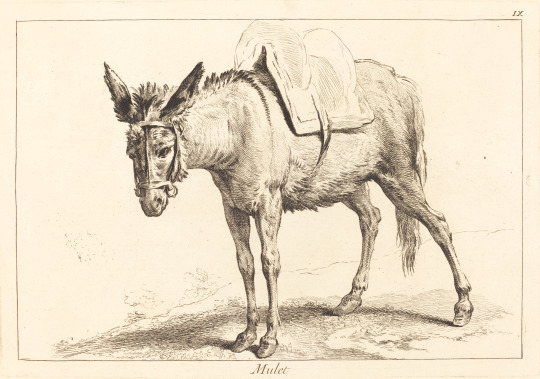
Mule, Jacques-Philippe Le Bas and Jean Eric Rehn after Jean-Baptiste Oudry, 18th century
#art#art history#Jacques-Philippe Le Bas#Jean Eric Rehn#Jean-Baptiste Oudry#animals in art#mule#mules#pack animals#animalier#print#etching#engraving#Rococo#French art#18th century art#National Gallery of Art
62 notes
·
View notes
Text
I was bored and put a bunch of French revolutionaries into the Hunger Games simulator so yay! Here are my fav moments:
Maximilien Robespierre and Joseph Fouché fight for a bag. Maximilien Robespierre gives up and retreats.
Not gonna comment on this...
Jean-Paul Marat bleeds out due to untreated injuries.
Wow. That felt personal. I feel like we've been here before.
Marie-Jean Hérault kills Philippe Le Bas while he is resting.
NOT PHILIPPE!!! AND WHILE HE WAS RESTING TOO :(
Georges Couthon is unable to convince Antoine Saint-Just not to kill him.
It's right up there in 'Top 10 Anime Betrayals'.
Augustin Robespierre convinces Georges Danton to snuggle with him.
... @bonbonrobespierre weren't you talking about this too?
Lucile Desmoulins accidentally detonates a land mine while trying to arm it.
NOT MY LUCILEEEE!
Charlotte Robespierre and Jean-Lambert Tallien sleep in shifts.
Charlotte allying with someone who had a hand in the deaths of her brothers? Hm I've heard this story before... /nsrs
Pauline Léon shoots an arrow at Élisabeth Le Bas, but misses and kills Claire Lacombe instead.
Uh oh. Just killed bestie
Maximilien Robespierre runs away from Charlotte Robespierre.
@ that one time when they moved out and Max moved back into the Duplays
Joseph Fouché, Georges Danton, and Françoise Hébert unsuccessfully ambush Élisabeth Le Bas, Maximilien Robespierre and Éléonore Duplay, who kill them instead.
Reverse Thermidor? (Kind of?)
Charlotte Robespierre and Éléonore Duplay work together for the day.
Well, that's new.
Maximilien Robespierre and Camille Desmoulins huddle for warmth.
Louis-le-Grand type activity
Maximilien Robespierre and Jean-Marie Collot track down and kill Augustin Robespierre.
Oof. I'd expect this from Collot, but Maxime?? After everything? Low blow.
Antoine Saint-Just, Charlotte Robespierre, and Jean-Lambert Tallien get into a fight. Jean-Lambert Tallien triumphantly kills them both.
WEREN'T YOU AND CHARLOTTE ALLIES?? 😭😭 Tallien you're somehow worse than Fouché at this
Maximilien Robespierre bleeds out due to untreated injuries.
Déjà vu, anyone?
Marie-Jean Hérault runs away from Élisabeth Le Bas.
YEAH BABET GET HIM FOR YOU AND PHILIPPE 💥💥💥💥💥
Jean-Marie Collot repeatedly stabs Camille Desmoulins to death with sais.
... well!
Collot won. The end.
#frev hunger games#maximilien robespierre#joseph fouché#jean paul marat#herault de sechelles#philippe le bas#georges couthon#antoine saint just#augustin robespierre#georges danton#lucile desmoulins#charlotte robespierre#pauline leon#elisabeth le bas#claire lacombe#francoise hebert#eleonore duplay#camille desmoulins#collot d'herbois#jean-lambert tallien#wow that's a lot of tags#frev#frevblr#frev shitposting#also with the bonbon and danton bit:#you've heard of robeston#now get ready for bonbonton#anyways bye
32 notes
·
View notes